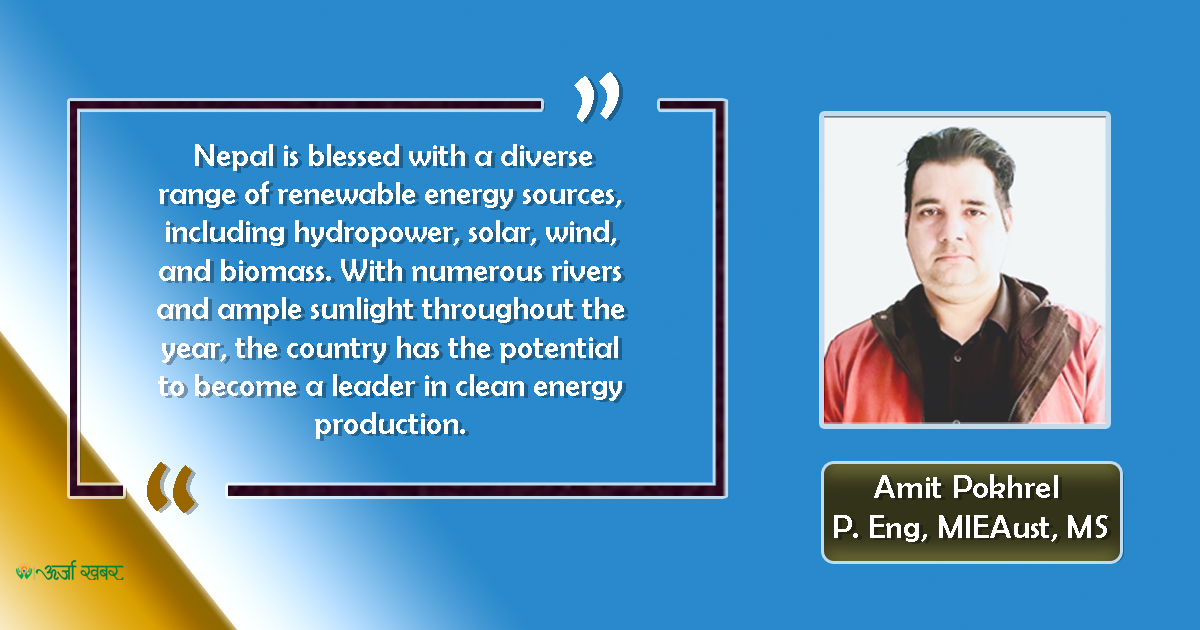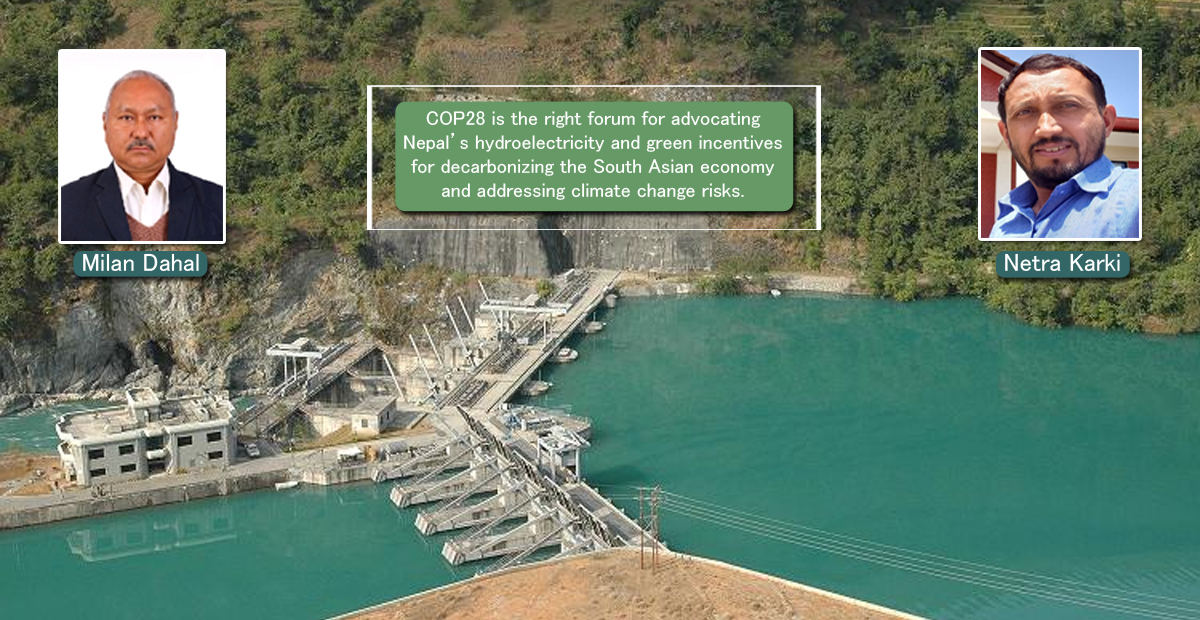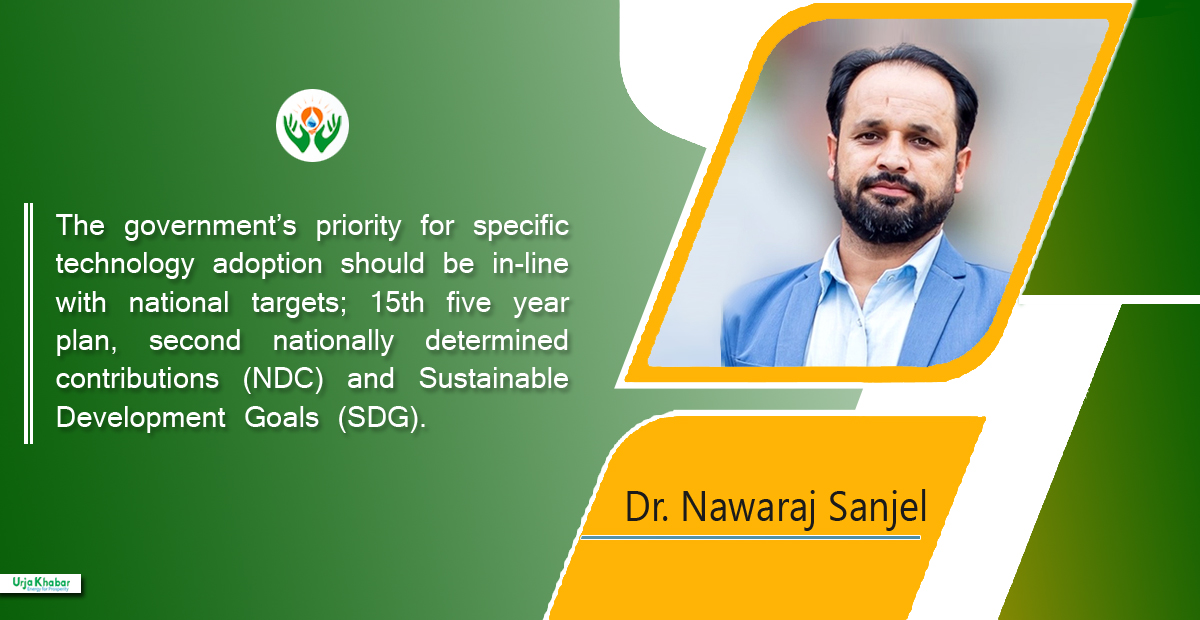Energy Update
Can an Investment Summit Boost Nepal's Renewable Energy Investments?

In recent years, Nepal has been making significant strides towards boosting its renewable energy sector. With its abundant natural resources and increasing demand for clean energy, the country holds immense potential in this area. However, one of the major challenges faced by Nepal is attracting the necessary investment to fully realize this potential. With abundant sources of hydro, solar, wind, and biomass energy, Nepal has the potential to become a leader in the renewable energy sector in South Asia.
Hydropower is the largest source of renewable energy in Nepal, accounting for over 80% of the total electricity generated in the country. The fast-flowing rivers and steep terrain make Nepal ideal for hydropower generation. The government has been actively promoting the development of small and medium-scale hydro projects to increase access to electricity in rural areas.
Solar power is another rapidly growing renewable energy sector in Nepal. The country receives abundant sunlight throughout the year, making solar energy a viable option for off-grid electricity generation. Rooftop solar panels are increasingly being installed in urban areas, reducing reliance on traditional grid-based electricity.

Although wind power is still in its nascent stage in Nepal, the country has significant potential for harnessing wind energy. The windy valleys of Mustang and Solukhumbu have been identified as suitable locations for wind power projects. The government is working to attract investment in wind energy projects to diversify the country's renewable energy mix.
Biomass energy, derived from organic materials such as agricultural residues and animal waste, is a traditional source of energy in rural Nepal. With the increasing focus on sustainable energy solutions, biomass energy is being promoted as a cleaner alternative to traditional biomass burning. Biogas plants are being set up in rural areas to produce clean cooking fuel and electricity.

The Role of Investment Summits in Nepal
Investment summits have emerged as a key strategy for countries looking to attract foreign investment. These events bring together investors, business leaders, and government officials to discuss investment opportunities and foster partnerships.
By showcasing the potential of a country's various sectors, investment summits can help attract much-needed capital. Nepal is blessed with a diverse range of renewable energy sources, including hydropower, solar, wind, and biomass. With numerous rivers and ample sunlight throughout the year, the country has the potential to become a leader in clean energy production. However, realizing this potential requires significant investment in infrastructure and technology.
Investing in Nepal's renewable energy sector offers a win-win situation for both investors and the country. Foreign investors have the opportunity to tap into a rapidly growing market while contributing to global efforts to combat climate change. At the same time, Nepal stands to benefit from increased access to clean energy, reduced reliance on fossil fuels, and enhanced energy security.
Challenges and Opportunities
Despite its potential, Nepal's renewable energy sector faces several challenges, including limited access to financing, regulatory hurdles, and inadequate infrastructure. Investment summits can serve as a platform to address these challenges by bringing together stakeholders from the public and private sectors to identify solutions and forge partnerships.
The Nepalese government plays a crucial role in creating a conducive environment for investment in renewable energy. By implementing clear policies, streamlining regulatory processes, and offering incentives to investors, the government can attract more capital to the sector. Investment summits provide an opportunity for government officials to showcase their commitment to supporting the renewable energy sector and to engage with potential investors.
The lack of investment in infrastructure, outdated regulatory frameworks, and limited access to financing are some of the hurdles facing the renewable energy sector. However, the government is actively working to create a favorable environment for renewable energy investment through policy reforms and incentives.
Further, Nepal's renewable energy sectors have shown immense potential for growth and development. With the right investments and policies in place, Nepal has the opportunity to become a shining example of sustainable energy practices for the rest of the world. By harnessing its abundant renewable energy sources, Nepal can ensure a bright and sustainable future for its citizens.
In conclusion, investment summits have the potential to be a catalyst for bringing investors to Nepal's renewable energy sector. By highlighting the country's renewable energy potential, addressing key challenges, and fostering partnerships, these events can help unlock the necessary investment to drive the sector forward. With the right support from the government and active participation from investors, Nepal can become a hub for clean energy production and contribute to a more sustainable future.
The Author of this article works as a Senior Contract & Commercial Specialist in the Energy Business verticals of Golyan Group, Kathmandu, Nepal
Conversation
- Info. Dept. Reg. No. : 254/073/74
- Telephone : +977-1-5321303
- Email : [email protected]














